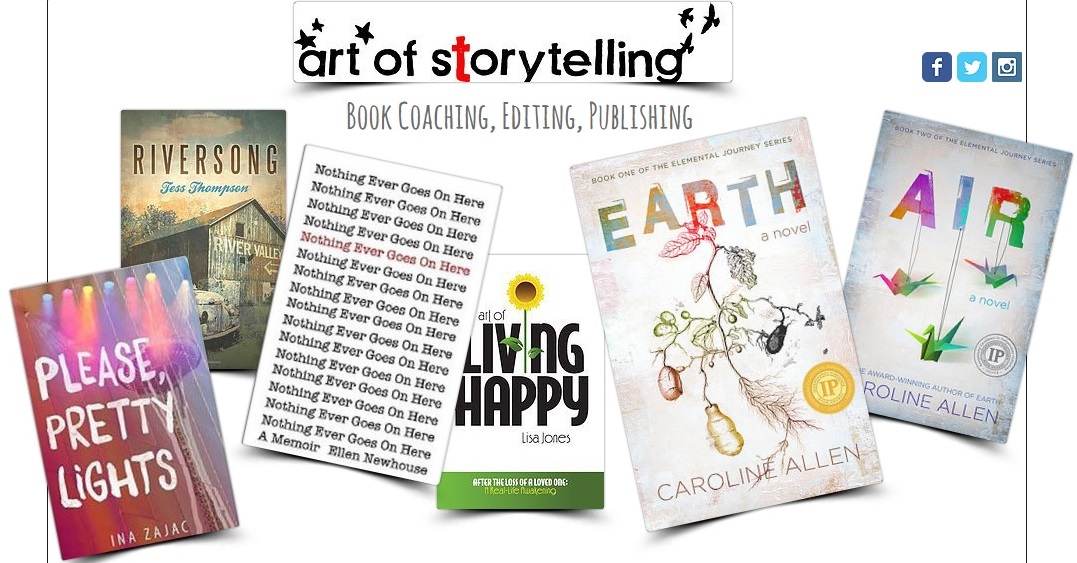Sun, 05 Jun 2016 17:07:57 +0000
At Art of Storytelling, we work with dozens of writers all over the world who are writing novels, memoir and self-help books in English, when English is their second, third or even fourth language. Many international book authors are eager to write in English because they believe having a major American publisher will mean more credibility and a level of international distribution that just isn’t available elsewhere.
I am American, and am fascinated with the voices of people all over the world and love working with non-American writers. This fascination began when I was an editor in a newsroom for nearly four years in Tokyo, working with Japanese photographers, writers and editors to produce a newspaper daily in English. My interest grew when I was a travel writer throughout SE Asia for a year, using translators to interview people from all walks of life, from rickshaw drivers, to resort owners. And my understanding continues to blossom as I coach book writers all over the globe through my business Art of Storytelling, working with writers from Singapore to Switzerland.
What are your top five core issues when you write in English as your second (or third or fourth) language?
- My English isn’t good enough. I will mix up English phrases and metaphors and sound silly. I cannot say this passionately enough: Do not worry about your English on the first draft. The soul of the work is the most important aspect of your creative process, and engaging the soul is the only way to write, and the only way to get published. Most new writers of any nationality do not understand the book writing process. The process always begins with a rough draft. This means “rough”, not perfect. Get the story out of you.
- Ok, I’ve finished the rough draft, now I don’t know where to go to find help with the revision. When you move onto revision after the rough draft, you will want to hone your language, as well as the story itself. It’s during revision, and then editing and proofreading that you need to polish the English. In the U.S., a whole cottage industry has sprouted up around book publication, especially with the advent of digital publishing. Native speakers are out there, willing to help you revise, edit and proofread your book. At Art of Storytelling, we’ve helped dozens of non-native speakers with everything from coaching to advice on publication.
- It’s so much work to write a book in a language that is not my native tongue! The amount of work for anyone writing a book is intense especially if you want it to be considered by the big publishers.Your need to work with an editor adds another level of intensity to your process and and will add months to the process. Writing a rough draft for anyone can take 9 months to a year, and the editing process can take several months. Give yourself this time plus much more to do this work properly. Don’t give up. Pace yourself. It’s a marathon, and if you’ve ever been a runner, you know how important pacing is in finishing a race.
- I’m in Australia or Brazil and have absolutely no contacts in American writing circles or the U.S. publishing industry. What are the industry standards? What are the expectations? What kind of structure makes for a good novel, by U.S. standards? Where do I begin to understand how to break into the American market? I believe that these questions are actually the biggest issues faced by writers in other countries. And these are questions that are too complex to answer here. Suffice to say: What if you’re difference, your outside-the-box energy, is what helps you get published? Use your differences.
- I feel so alone. I need a writer’s group of like-minded souls, but writers in my home country are writing in my home language. Where can I find a group of writers working in English as a second language? Writing is a solo art. Our work becomes even more isolating when we’re writing in a non-native language. Who can you share your work with? Begin by searching online for online writer’s groups. If that doesn’t work, find one person to do an online exchange with. Even having one other person can make a big difference. At Art of Storytelling, I believe the one-on-one support we provide to writers in other countries is as big a reason they hire us as the advice we provide on the technicalities of writing. We all need support!
If you’re seeking a coach, editor or proofreader, contact us at Art of Storytelling (info.artofstorytelling@gmail.com) for a free intial consultation. www.artofstorytellingonline.com. AofS owner Caroline Allen is the two-time award-winning novelist of the literary novels, Earth and Air, available at most online booksellers. Find out more on her website, carolineallen.com.
